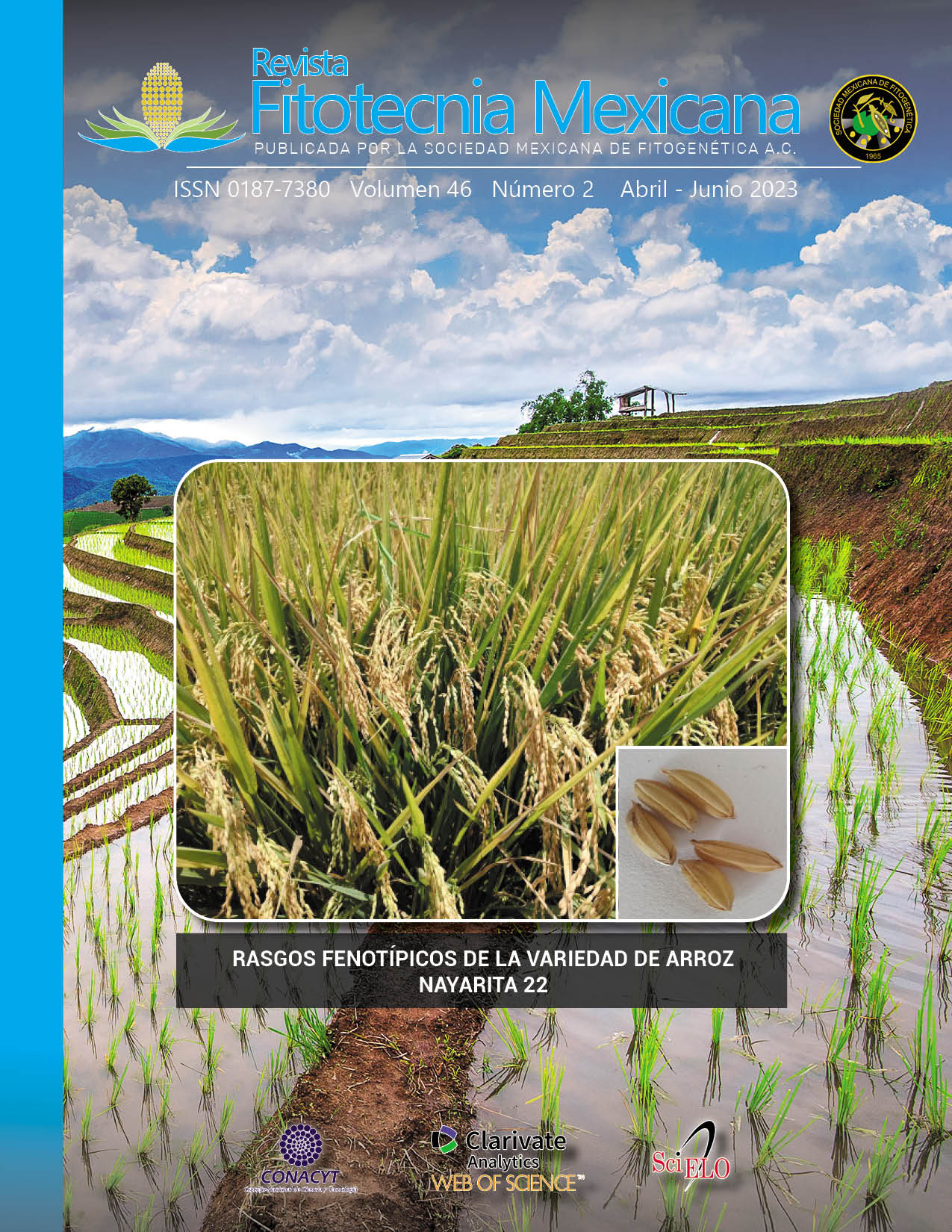DIVERSITY AND PROPAGATION OF NATIVE ARBUSCULAR MYCORRHZAL FUNGI FROM AN ORGANIC COFFEE PLANTATION IN CHIAPAS, MEXICO
Main Article Content
Abstract
Arbuscular mycorrhizal fungi (AMF) live in mutualistic symbiosis with most terrestrial plants, through which they can increase mineral uptake and plant growth. The objective of this study was to determine the diversity of native AMF associated to an organic coffee plantation, and to evaluate the effect of the host plant and the composition of the substrate on the propagation of the native AMF consortium. A composite soil sample was collected in the rhizosphere of coffee bushes (Coffea arabica L.), and morphological identification of species, abundance and diversity of AMF was performed. In the greenhouse, the mycorrhizal consortium was propagated in trap plants of coffee, beans (Phaseolus vulgaris L.), maize (Zea mays L.) and Insurgent grass (Brachiaria brizantha Trin. Griseb). For each species of the trap plant, two types of substrate, with and without organic compost, were inoculated with 200 g of soil containing 556 spores of the mycorrhizal consortium from the coffee plantation. In soil of the coffee plantation, 18 species of AMF were identified, with Acaulospora being the predominant genus. The abundance was 139 ± 3.7 spores/50 g of soil and fine coffee roots showed 86 % colonization. In the propagation of the AMF consortium, greater sporulation was found in maize in composted substrate (134 ± 2.9 spores/50 g of soil) in relation to the other plants, while the diversity of AMF was higher in beans with compost (nine species, with Shannon-Wiener indice of 2.03). Of the species found, Glomus multicaule and Funneliformis monosporus constitute new records for Chiapas. In conclusion, the organic coffee plantation had high diversity of AMF, and maize and beans are host plants with potential for the propagation of native AMF from coffee bushes.

